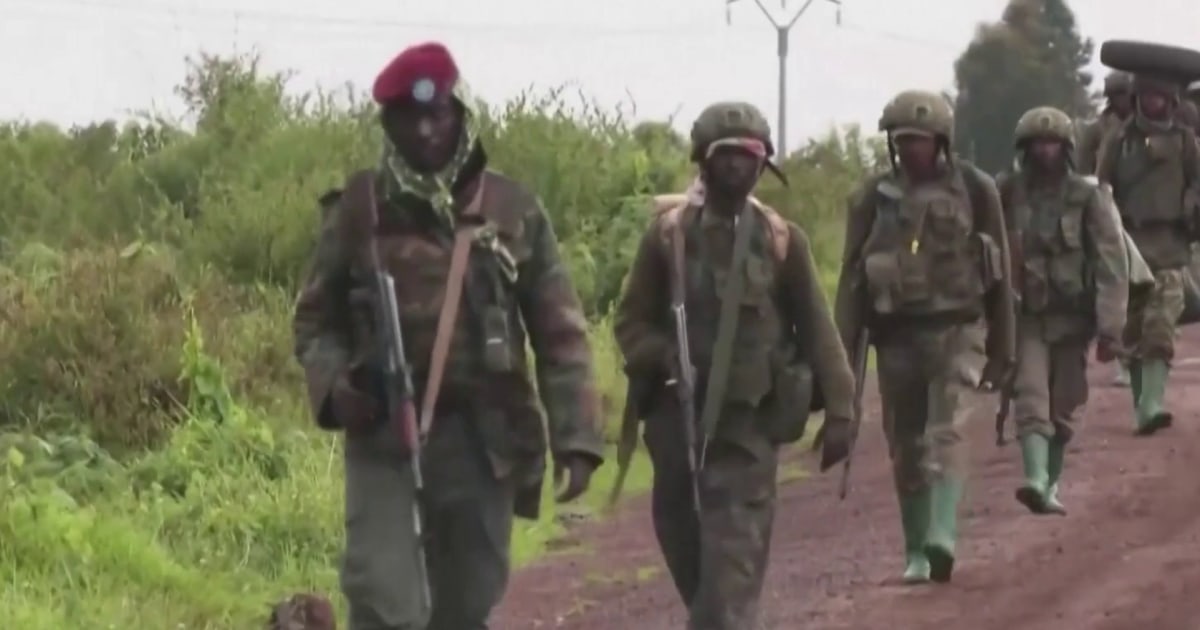Rising Tensions: Armed Rebels Threaten Major Congolese City
As armed rebel groups advance toward a significant urban center in Congo, concerns grow over the potential humanitarian crisis. Local authorities and international observers are closely monitoring the situation, fearing an escalation of violence. This development comes amidst decades of conflict in the region, where various factions vie for control over resources and territory.
Understanding the Context of the Current Crisis
The Democratic Republic of Congo (DRC) has long been a nation beset by conflict. Since gaining independence in 1960, the country has experienced repeated cycles of violence, often fueled by ethnic tensions, political instability, and the lucrative trade of minerals like coltan, gold, and diamonds. The latest surge of armed conflict has drawn attention to the eastern provinces, particularly near Goma—a major urban center that serves as a gateway for commerce and humanitarian aid.
In recent weeks, reports have emerged of armed groups, notably the M23 rebel faction, making significant advances towards Goma, raising alarms among local leaders and the international community. The M23, which had previously been dormant, has resurfaced, claiming to fight against government neglect and the alleged support of the DRC military for rival groups.
Potential Humanitarian Crisis
The escalating tensions in the region could lead to a severe humanitarian crisis. With Goma being home to over a million people, many of whom are already displaced due to past conflicts, the potential influx of violence poses a dire threat. Key concerns include:
- Displacement: Should the conflict escalate, thousands of civilians could be forced to flee, exacerbating the already critical situation of internally displaced persons (IDPs) in the area.
- Access to Basic Necessities: The ongoing violence threatens to disrupt supply chains, making it difficult for humanitarian organizations to deliver food, medical supplies, and other essential services.
- Health Risks: Increased violence can lead to a breakdown of healthcare services, leaving populations vulnerable to diseases and other health crises.
- Psychosocial Impact: Prolonged exposure to violence can lead to severe psychological trauma among affected populations, particularly children.
International Response and Local Actions
In light of the rising tensions, the international community has started to respond. The United Nations has called for immediate dialogue and de-escalation, while various NGOs are ramping up their efforts to provide support to those at risk. Local authorities in Goma are also taking steps to prepare the populace:
- Community Awareness: Local leaders are holding community meetings to inform residents about the potential risks and encourage preparedness.
- Coordination with Security Forces: There is a heightened collaboration between local police and international peacekeeping forces to maintain order and prevent violence from spilling into urban areas.
- Humanitarian Aid Planning: Organizations are developing contingency plans to ensure that aid can be delivered swiftly in case of an emergency.
The Role of Regional Politics
The situation in Congo cannot be viewed in isolation; it is deeply intertwined with regional politics. Neighboring countries, such as Rwanda and Uganda, have historically had interests in the DRC’s mineral wealth, often backing various rebel groups. The resurgence of the M23 has led to accusations of Rwandan involvement, further complicating an already volatile situation. Diplomatic efforts to address these accusations are crucial, as they could either alleviate tensions or exacerbate them if not handled carefully.
Local Perspectives: Voices from Goma
To gain a more profound understanding of the situation, it’s vital to listen to the voices of those directly affected. Residents of Goma express a mix of fear and resilience. Many have lived through past conflicts and are acutely aware of the potential consequences of renewed violence. A local community leader shared:
“We have seen this before. The fear of war is palpable, but we are united. Our community has survived hardships, and we will continue to support each other, no matter what happens.”
This sentiment of solidarity is echoed in the actions of local NGOs, which are mobilizing resources to support vulnerable populations. By fostering community ties and resilience, they aim to mitigate the impact of any future conflict.
Looking Ahead: Strategies for Peace
As the situation in Congo remains precarious, several strategies could help mitigate the risks and promote peace:
- Inclusive Dialogue: Encouraging dialogue among all stakeholders, including the government, armed groups, and civil society, is crucial to finding a lasting solution.
- Strengthening Governance: Enhancing the capacity of local governance structures can help address grievances that fuel conflict, thereby reducing the appeal of armed rebellion.
- International Support: Continued engagement from the international community is necessary to provide resources and diplomatic pressure to foster a peaceful resolution.
- Community Resilience Programs: Investing in programs that bolster community resilience can empower local populations to withstand and recover from crises more effectively.
Conclusion: A Call for Vigilance and Hope
The rising tensions in Congo, particularly as armed rebels threaten major urban centers like Goma, present a complex challenge that requires both immediate attention and long-term solutions. While the potential for a humanitarian crisis looms large, it is essential to recognize the resilience of local populations and the proactive measures being taken by authorities and organizations alike.
As we continue to monitor this evolving situation, it is imperative to maintain hope and support efforts aimed at fostering peace and stability in the region. The international community, regional governments, and local leaders must work hand in hand to ensure that the voices of the Congolese people are heard and that their rights to safety and dignity are upheld.
See more CNN Headline


